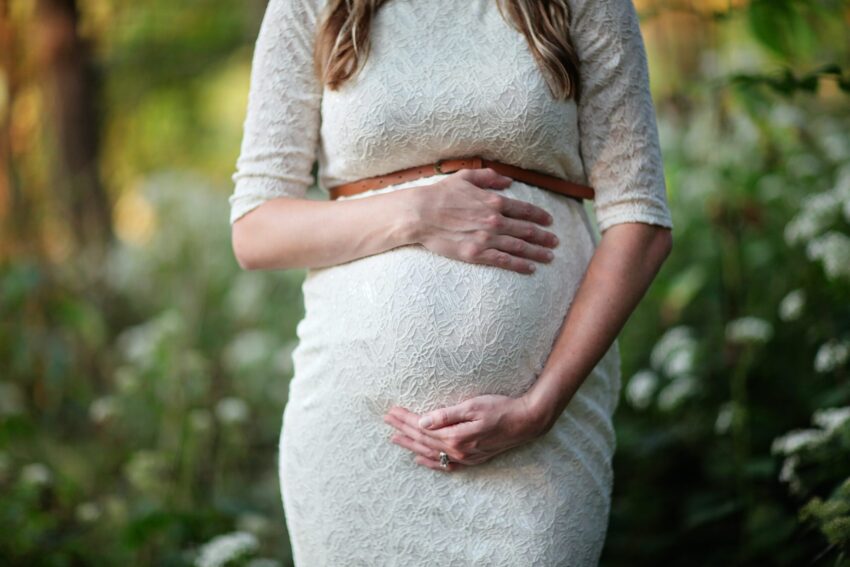Fascinating changes occur during pregnancy. However, the skin can react unusually to these hormonal changes. Atopic dermatitis is the most common skin condition during pregnancy and is also known as “atopic eruption of pregnancy (AEP)”.
Symptoms are usually characterised by redness and itching on the face, neck, chest, elbows and back of the knees. However, nodules (papules) can also occur.
Pregnancy affects the skin
Some women have a genetic predisposition to developing atopic dermatitis. Consequently, atopic dermatitis can occur for the first time during pregnancy. However, this predisposition had already existed earlier and may have signalled itself beforehand, for example, by:
- dry skin
- Relatives who suffer from an atopic disease (e.g. hay fever, allergic asthma)
If women already had atopic dermatitis before pregnancy, the skin can also change. More than half of these pregnant women experience a worsening of the skin. However, the skin can also improve during pregnancy. This is the case for around a quarter of women.
Good to know:
To protect the fetus, the immune system changes during pregnancy. There is an increased release of cytokines. This shift in the immune system could be the reason for the development of eczema.
What should I do if my skin deteriorates?
Nine out of ten women experience changes to their skin while they are pregnant. Even though atopic dermatitis is the most common skin disease, there are other causes for the skin changes. The diagnosis can therefore only be made by a dermatologist. Medical consultation is particularly recommended when atopic dermatitis occurs for the first time during pregnancy.
The treatment of atopic dermatitis during pregnancy should also be carried out in close consultation with your dermatologist. Most of these products are safe for short-term and moderate use:
- topical corticosteroids (cortisone creams that can be applied to the skin)
- topical calcineurin inhibitors
However, special caution and consultation is required for preparations taken orally (by mouth). The same applies to other systemic therapies, including biological therapy. To date, there are still too few studies that prove successful treatment with biological therpay during pregnancy.
Important:
The diagnosis and treatment of atopic dermatitis during pregnancy requires medical expertise. Regular basic care with replenishing and moisturising creams is safe and should be continued in all cases.
Adapting your lifestyle

Some tips and advice for your skin during pregnancy are safe for you and your future baby. They are also generally recommended. If you make them a habit, they will be helpful in the long term. These include
- Nicht zu warm und lange duschen
- Feuchtigkeitscreme regelmäßig und vor allem unmittelbar nach dem Duschen auftragen
- Achtsamkeits- und Entspannungsübungen
The health of the fetus is usually not jeopardised by atopic eruption of pregnancy.
References:
- Weatherhead, S., Robson, S. C., & Reynolds, N. J. (2007). Eczema in pregnancy. BMJ (Clinical research ed.), 335(7611), 152–154. https://doi.org/10.1136/bmj.39227.671227.AE (external)
- https://www.everydayhealth.com/eczema/pregnancy-eczema.aspx (external); Accessed on 16.04.2022
- Balakirski, G., & Novak, N. (2022). Atopic dermatitis and pregnancy. The Journal of allergy and clinical immunology, 149(4), 1185–1194. https://doi.org/10.1016/j.jaci.2022.01.010 (external)
- Koutroulis, I., Papoutsis, J., & Kroumpouzos, G. (2011). Atopic dermatitis in pregnancy: current status and challenges. Obstetrical & gynecological survey, 66(10), 654–663. https://doi.org/10.1097/OGX.0b013e31823a0908 (external)
- https://www.apotheken-umschau.de/familie/schwangerschaft/juckreiz-in-der-schwangerschaft.html (external); Accessed on 16.05.2022

